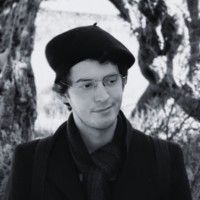João Leste
Media, Society and Literacies
Master in Design at the Pontifical Catholic University of Rio de Janeiro (2021), having conducted his research in the Laboratory of Ergodesign and Interface Usability (Laboratório de Ergodesign e Usabilidade de Interfaces - LEUI), and PhD student in the same institution, conducting his research in the Laboratory of Language, Interaction and Sense Making in Design (Laboratório Linguagem, Interação e Construção de sentidos/Design - LINC-Design).
He is a PhD researcher and had a scholarship from CAPES (2021 - 2023), later received a scholarship from FAPERJ Nota 10 (2023), and is currently a visiting researcher at the Lusophone University via the CAPES-Print fund. He is a former Designer/Researcher at the Tecgraf Institute/PUC-Rio (2021-2022) and also acted as an inter for the Vice-Dean of University Extension and Pedagogical Strategies at PUC-Rio (2022-2023).
He is a volunteer at the Cidadão Pró-Mundo Association, and the current Students Coordinator from the Qualify Unit since 2021, where he has also been a teacher (2021). He also volunteered at the Botafogo Unit, where he has already been a teacher (2019 - 2020), Communications Coordinator (2019 - 2020), Pedagogical Coordinator (2021), and Unit Director (2021 - 2023).
He is also part of the Collegiate of Students from the Post-graduate Program in Design at PUC-Rio since 2019, and has been an elected member of the CNPq's Scholarship Committee (2019 - 2020), coming back to this position in 2023.
Stemming from his research at LINC-Design/PUC-Rio, he coordinates the project Narrative-based boardgames as tools for meaning-making, communication and inclusion for young adults from multicultural and multisocial backgrounds, financed by Game in Lab and conducted in partnership with NEAM/PUC-Rio and PUC-Rio's Pastoral Church.
He conducts research projects focused on games as tools for inclusion and promotion of communities for marginalised people - considering its countless cognitive, educational, and social benefits. He is also a specialist in tabletop games's rulebooks, defining the process of reading, apprehending and comprehending its rules as a non-formal educational scenario. His theoretical framework integrates ergonomics, ludic studies, linguistics and design with a focus on generating experiences of inclusion and equity. He believes that a Designer's role in society is to design projects with a focus on the social wellbeing and democratic access to the rights that have been historically denied to marginalised groups.
Main research interests
Tabletop Games, Rulebooks, Access, Interaction, People With Visual Disabillitie

